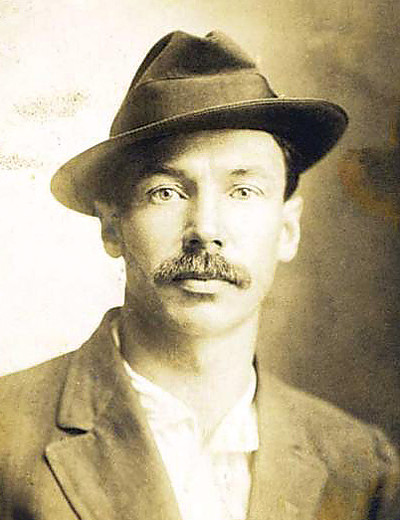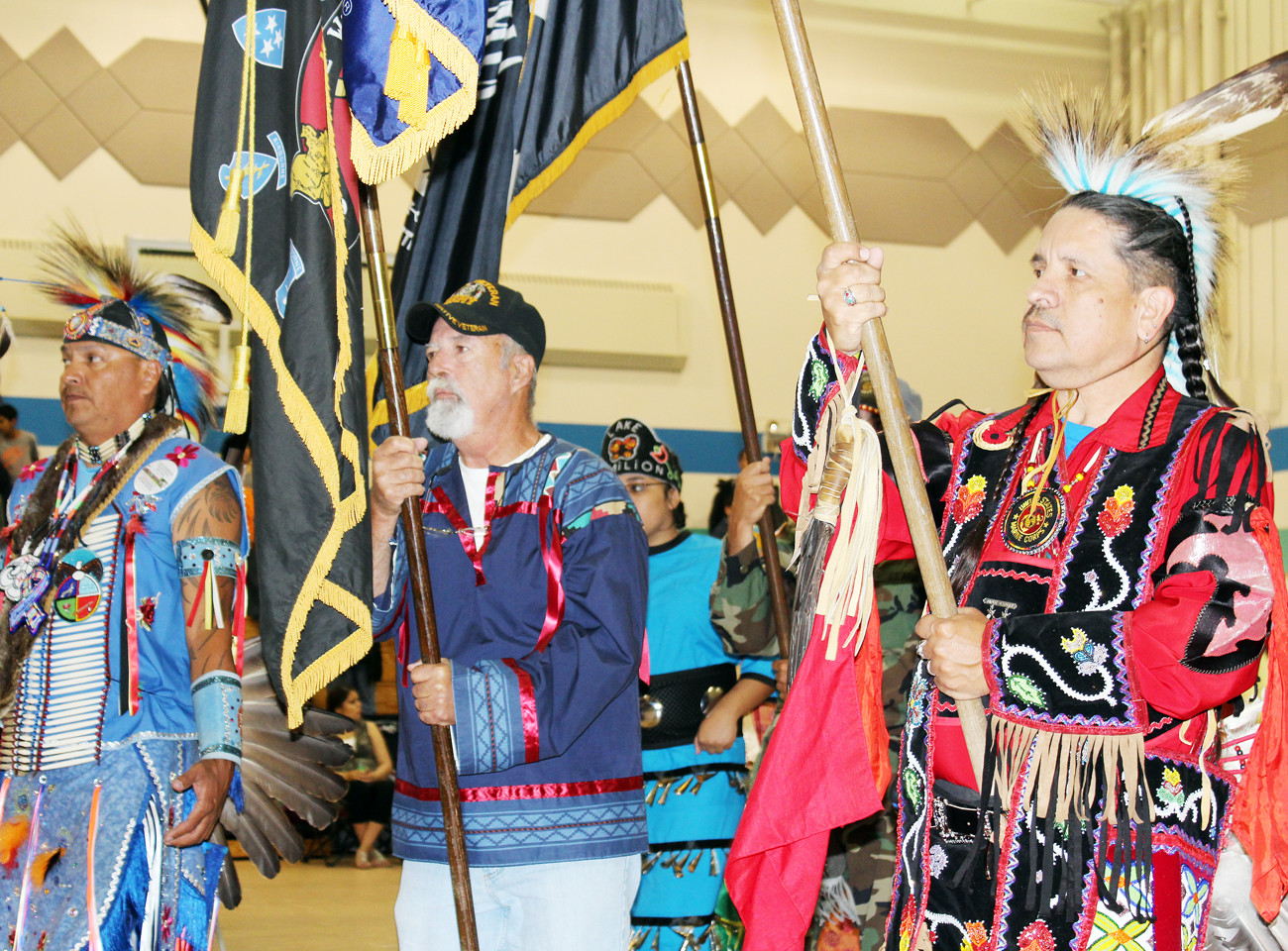Support the Timberjay by making a donation.
An adventure tale locked away
Found manuscript reveals life of Ojibwe during fur trading era
REGIONAL- The story behind this story is almost as interesting as the novel itself.
“Savage Ancestors,” is a once-in-a-lifetime find, written by the late Leo Chosa and edited by his grandson Donald Chosa Jr. The novel, published in August, is the first in a trilogy.
The manuscript, by all accounts, might have been lost forever. It was in a box of old papers in the office of Bill Trygg, who ran a realty office in Ely, who had been a friend of Donald’s father and grandfather. After Bill’s death, the Trygg family turned over the box, which mostly contained old documents, newspaper clippings, and some letters, to the Bois Forte Heritage Center and Museum, which then contacted Donald.
“Bill Trygg had kept the manuscripts for him,” said Donald, “after they had been returned by publishers. They never got published.”
“I can’t imagine what prompted him to write it,” said Donald. “The book made me wonder where he went to school. All I knew was that he owned a resort and was an Indian guide.”
No one in the family realized that their grandfather Leo had been a novelist. Donald said he was overwhelmed by all the papers in the box, and didn’t even open the manila envelopes containing the novels for a year, when he finally had time to start sorting through the family history trove.
“I opened the large old-fashioned faded brown envelopes. I carefully removed the manila folders and slid the thick pile of papers out of the folders. There were three fully- typewritten manuscripts with title pages. To my amazement I found that the manuscripts were well-written and upon reading the first paragraph, each caught my interest as any bookstore novel would,” Donald writes in the preface. Donald estimates the novels were written as far back as the 1930s.
Donald never met his grandfather, who died in 1956, two years before he was born.
“What I knew of my grandfather was that he had always been an Indian guide, fisherman, avid outdoorsman and resort owner in the Boundary Waters Canoe Area,” writes Don in the preface of the novel.
Leo Chosa was from the Ojibwe tribe, with some French ancestry. He originally came from the Keweenaw Bay Indian Community in the Upper Peninsula of Michigan.
He eventually came to own the land, which was a part of what would eventually become known as the BWCA, surrounding the Prairie Portage north of Winton. He charged a fee for boats to be transported across each of the portages. He used flatbed trucks designed from Model T’s to transport the boats. After a time he built a series of log cabins that he rented to tourists and hunters and opened a general store in another log cabin he built that serviced the other resorts in the Boundary Waters Canoe Area. The store cabin is now considered a historical site and is maintained by the U.S. Forest Service.
“My grandfather and grandmother had eight children,” wrote Donald. “My father was the youngest of them. In later years my grandmother Annie Dufault Chosa moved to the Vermilion Sector of the Bois Forte Reservation so she could work at the boarding school for Native American children. My father attended the school as a day school until he went the high school in Tower. My father spent summers with Grampa Leo on Basswood Lake working at the resort and winters with Gramma Annie on the Bois Forte Reservation to attend school.”
Leo was an early environmental activist who wrote many articles to the local papers about protecting the natural state of the forest in the Boundary Waters and the wastefulness and carelessness of the loggers.
“My grandfather set precedence and an example with his ideas which were before his time for environmentalists to come,” writes Donald.
Within minutes of opening and starting to read the manuscripts, Donald realized that he could start the process of getting the novels published. He painstakingly began to edit the manuscripts, and “Savage Ancestors,” is the first installment, of what is a planned trilogy.
The manuscripts were written in the mindset of that time,” said Donald, “They reference ideas that aren’t spoken of or written concerning far northern Minnesota.” He notes the book is a window into how things were viewed through the eyes of a Native American.
The story
“Savage Ancestors” follows the story of Paulette DuCharme during the era of the fur traders in the woods around Lake Superior. It is in part a cultural history, a mystery, and a love story. A young woman, part French and part Ojibwe, who cares for her elderly Ojibwe grandparents in a settlement outside of a French trading post, is kidnapped by French traders, and married to their leader. Shortly after, when her husband is murdered, she has the leadership skills and courage to take charge of her husband’s trading post, and then works to make life better for the native Ojibwe who live in the area. It is also the story of a young Ojibwe warrior, Batiste, also part French, who briefly crosses paths with Paulette, coming to her aid in a confrontation with rogue traders, but when questions arise after the death of Paulette’s husband, leaves to return to his own home, thinking that somehow Paulette has been involved in the murder.
The story is at times lyrical and magical. It brings the people that inhabited the north woods before Europeans settled the area to life. The characters are fully drawn. It is an engrossing and suspenseful read that is hard to put down, before the final mysteries are solved.
“Leo Chosa’s work invites the reader to open a doorway to Ojibwe life in the northwoods,” writes Linda Legarde Grover. “Beautifully told, the story evokes the experience of hearing narratives shared by elders of long ago.”
“Chosa emerges as a new lyric voice in Native American writing,” writes Anton Treuer. “Authentic and engaging, this is worth your time.”
The book is available locally at the Bois Forte Heritage Center (at Fortune Bay) in Tower and Piragis Northwoods Co. in Ely. It is also available online at amazon.com. Donald said when he finishes editing the trilogy, there is a second set of novels, about loggers, which is based in Ely.
Donald Chosa and his wife Karlene live in Nett Lake. He teaches Ojibwe language and culture at the North Woods School, and is the former Bois Forte Language and Cultural Coordinator for the Bois Forte Band of Ojibwe. He has taught at colleges in Minnesota and Michigan. His original artwork is used on the cover of the novel.









